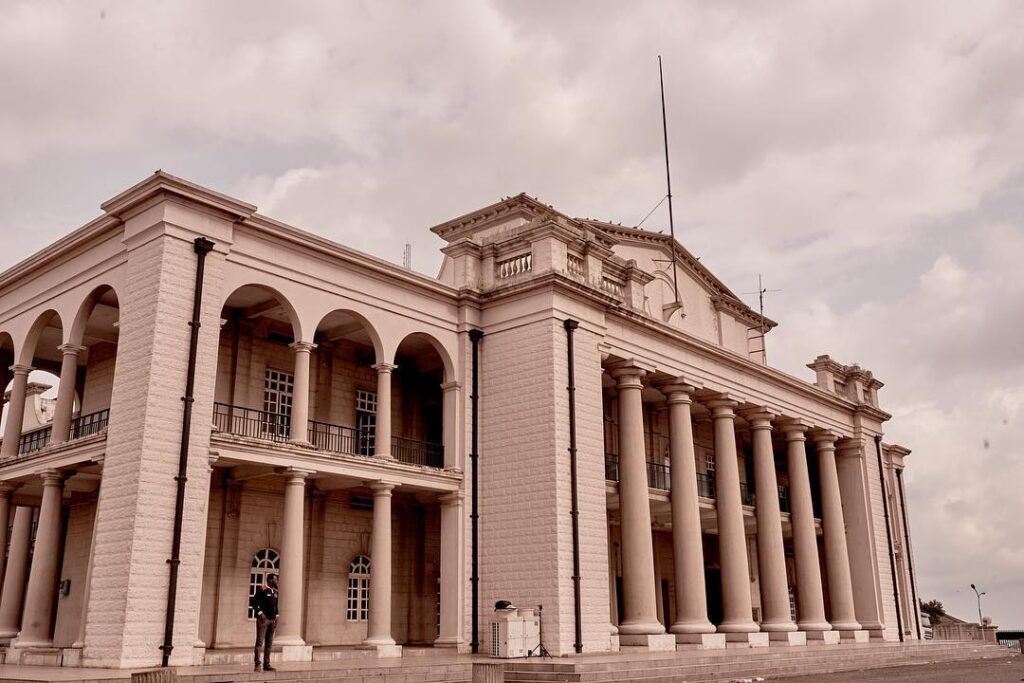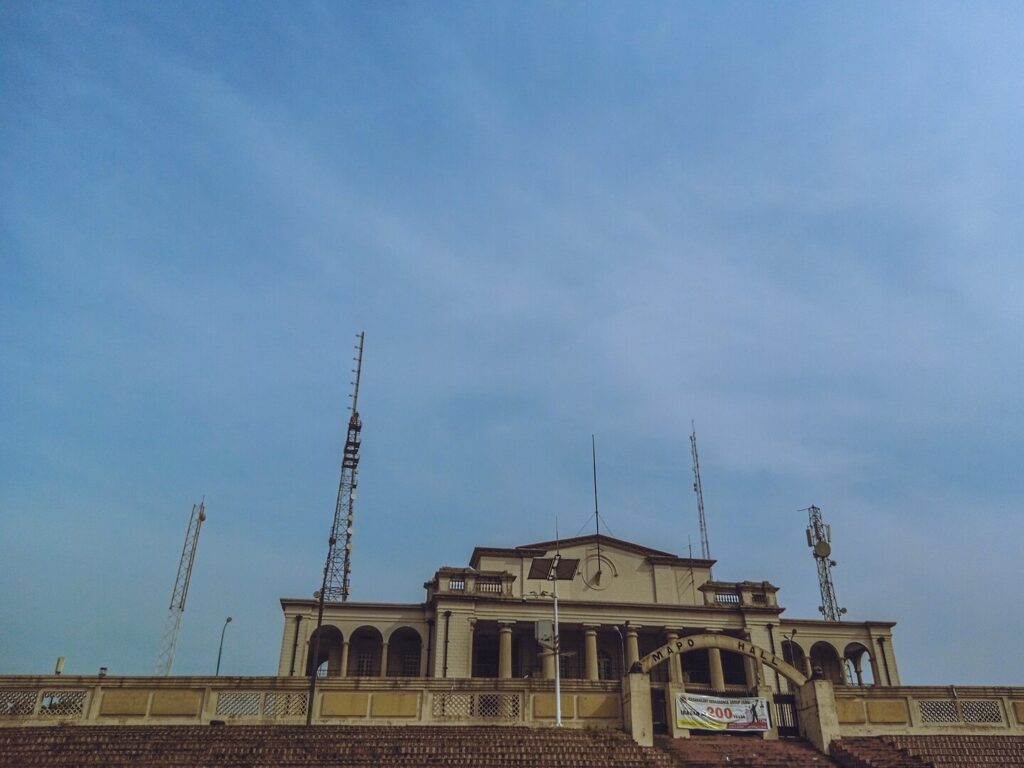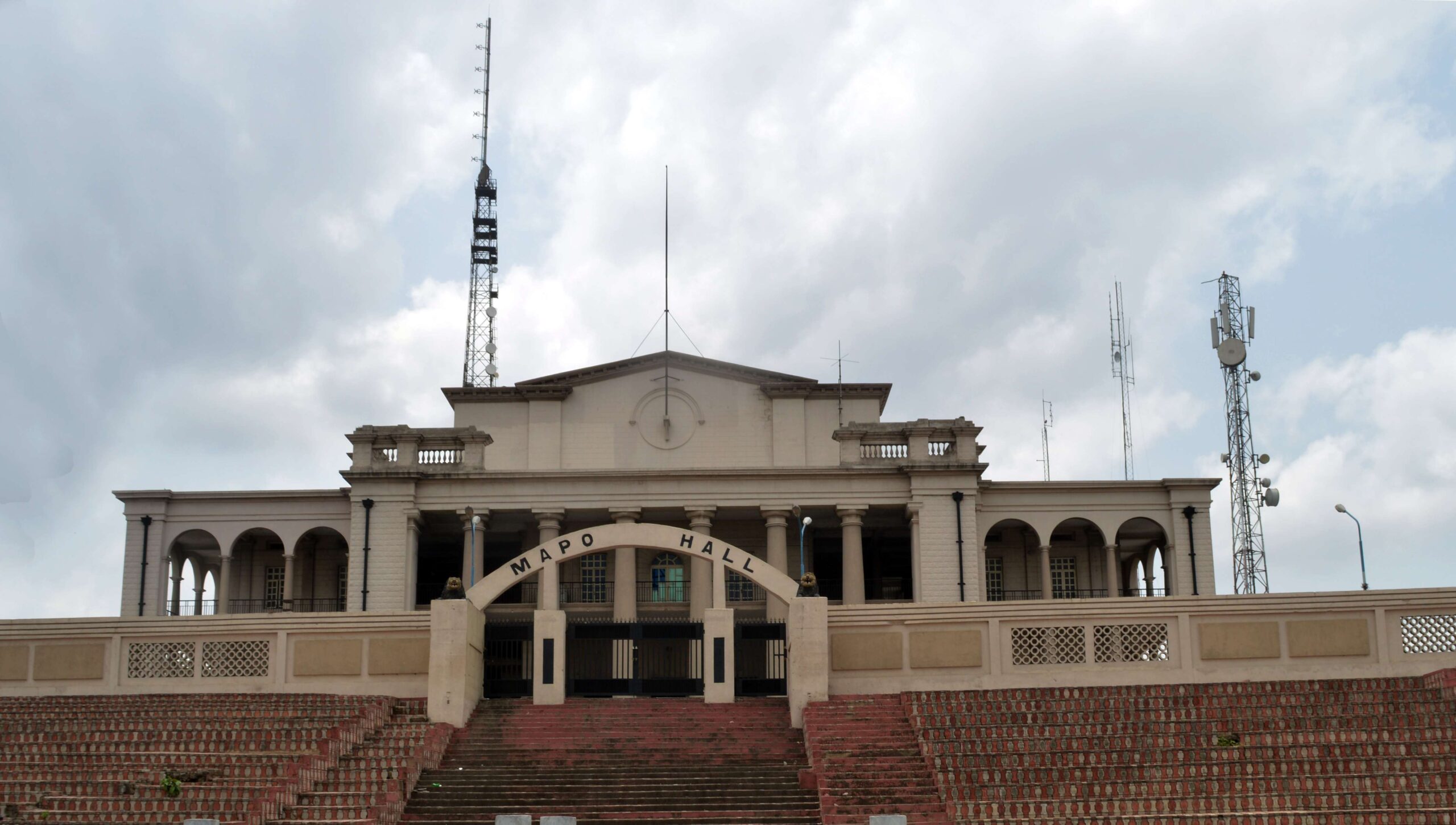Perched majestically atop Mapo Hill, Mapo Hall is one of Ibadan’s most iconic landmarks. This grand edifice, built in 1929, stands as a testament to the city’s historical and cultural significance. Commissioned by Captain Ross, the then Resident of Oyo Province, and designed by Engineer Robert Taffy Jones, Mapo Hall is a striking example of colonial architecture infused with Yoruba influences.

History of Mapo Hall
At the turn of the century, as the dust settled from the famed Kiriji War, Ibadan emerged not only as a leading Yoruba town but also as the natural capital of Yoruba political life. This period marked a significant transition for Ibadan. It solidified its status as a central hub of political activity, cultural heritage, and economic strength.
The construction of Mapo Hall happened around this time to serve as the administrative headquarters for Ibadan Native Authority during the British colonial era. It was inaugurated by Sir Donald Cameron, the Governor of Nigeria at the time. Since then, it has played host to numerous political, cultural, and social events. Furthermore, it became a central point for community gatherings and decision-making. Notably, the hall has witnessed speeches by prominent figures, including the revered nationalist and statesman, Chief Obafemi Awolowo.
Ibadan: A Powerful Ode to Its Uniquely Vibrant Spirit and Ways
Design
The architectural design of Mapo Hall is a blend of European and traditional Yoruba styles. Its impressive façade features grand columns and an expansive veranda that offers a breathtaking panoramic view of the city. The interior is equally captivating, with a spacious auditorium that can accommodate a large number of people. The hall’s design reflects the grandeur and dignity of its purpose, serving as a symbol of Ibadan’s prominence and cultural heritage.
Beyond its administrative role, Mapo Hall has also become a cultural hub in Ibadan. It regularly hosts the coronation of Olubadan, traditional ceremonies, weddings, and other significant events that draw people from all over the city and beyond. The hall’s cultural significance is further underscored by its location—surrounded by key landmarks such as the old Olubadan’s palace, Oja Iba, and the Ibadan Central Mosque. This proximity to other historical sites thus makes Mapo Hall a focal point of Ibadan’s rich heritage.

Preservation Efforts
Recognising its historical importance, governments have made efforts to preserve Mapo Hall. The building has therefore undergone several renovations to maintain its structural integrity and historical charm; it underwent an extensive renovation under the Alao-Akala adminstration. These efforts ensure that Mapo Hall continues to stand as a proud symbol of Ibadan’s past, present, and future.
Visiting Mapo Hall
Today, the compound serves as the administrative headquarters of Ibadan South East Local Government.
A visit to Mapo Hall offers a unique glimpse into Ibadan’s history and culture. The view from the top of Mapo Hill is stunning, providing a sweeping vista of the sprawling city below. Visitors can explore the hall’s grand interior and learn about its historical significance through various exhibits and displays.
Mapo Hall is more than just a building; it is a symbol of Ibadan’s resilience, cultural richness, and historical significance. Its grand architecture and central role in the city’s history make it a must-visit landmark for anyone interested in understanding the heritage of Ibadan. Whether you are a history enthusiast, a cultural explorer, or simply someone who appreciates architectural beauty, Mapo Hall offers an enriching experience that connects you to the soul of Ibadan.



Leave a Reply